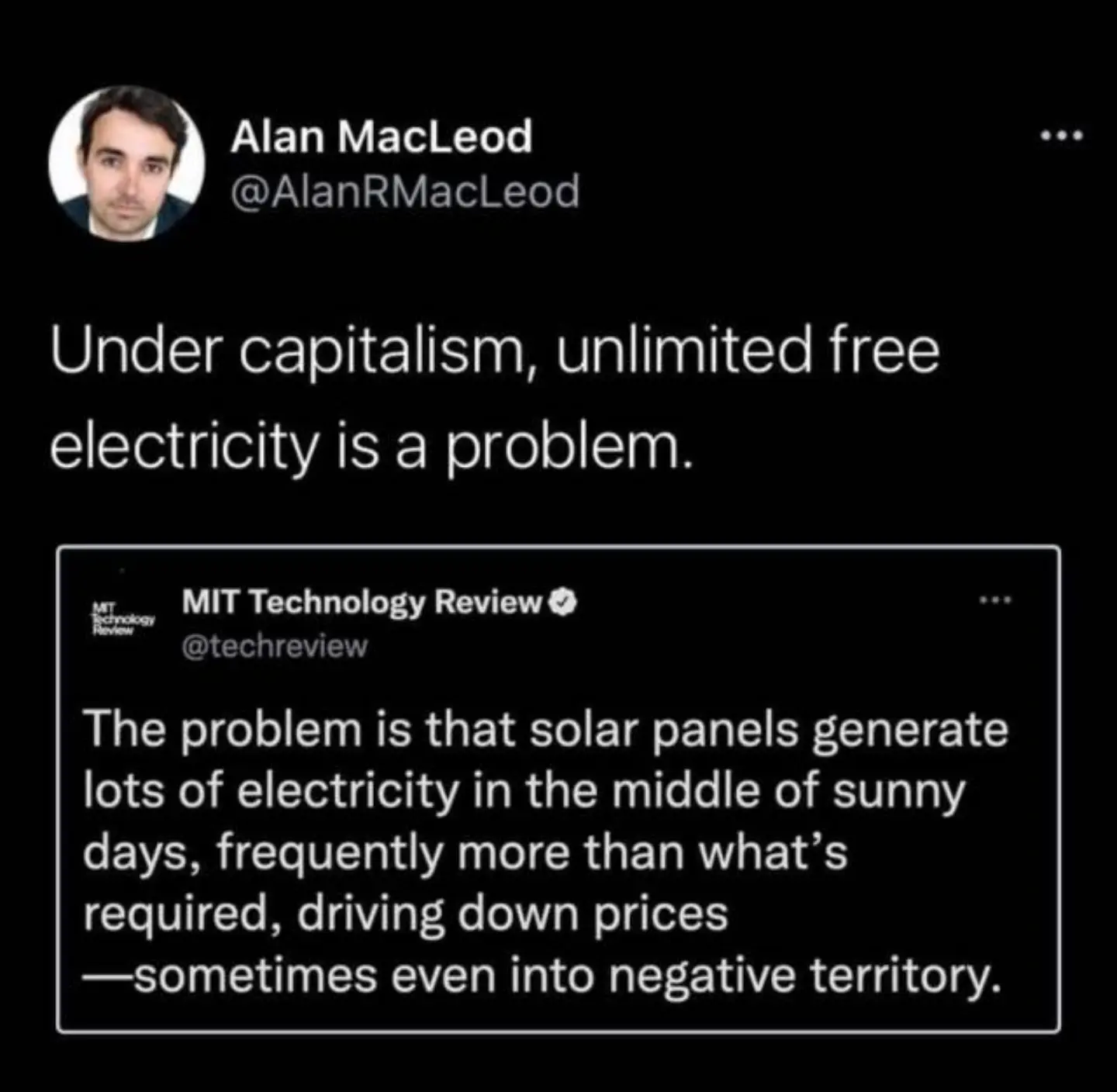this post was submitted on 09 Apr 2024
1657 points (96.0% liked)
Solarpunk
5507 readers
111 users here now
The space to discuss Solarpunk itself and Solarpunk related stuff that doesn't fit elsewhere.
Join our chat: Movim or XMPP client.
founded 2 years ago
MODERATORS
you are viewing a single comment's thread
view the rest of the comments
view the rest of the comments

Your explanation works very well, but completely falls apart in the last paragraph.
Solar power production clearly is (at least in part) a post-scarsity scenario, given we literally have too much power on the grid.
Furthermore, calling the power market anything like "free" is just plain wrong. A liberal approach to market regulation here would have led to disaster a long time ago, for the reasons you described at the beginning of your comment.
The market "works" because of, not inspite of regulation.
And negative prices are a good thing for consumers, not market failure.
There's no post scarcity. The power available on the grid must always equal the power consumed. Or all the hell will break loose.
That's wrong and it's simple to explain why.
If the grid allows negative prices, grid storage becomes a profitable business opportunity.
The power consumption will always go up or production will go down if prices go negative.
We are missing a key piece of the puzzle to decarbonise the grid and that's storage of the abundant renewable power we could easily create.
This is a sign the market is ready for investment in storage.
The person you're responding to is talking about physics, not economics.
They're mixing the two to attempt to make a point. "Post-scarcity" is an economic concept, and I've never heard that term used in physics.
It's two separate statements. We don't live in a post scarcity world. Power grids have physical limitations regarding power in and power out.
Ah then it's just two non sequiturs that don't relate to each other
ah yes the physics concept of "post scarcity"
Power plant operators are known to have dreaded this inevitability. There will be no more electrons.
There's no point about talking about the physics of the grid without the economics.
The story of the New York blackouts is not one of groundbreaking physics.
It's the story of two lightning strikes, some very basic physics, and a systemic failure.
Understanding the systemic failure is not a physics question. Electricity is already well understood and that physics isn't changing.
A renewable grid is not a physics question either. It's one of regulation, redundancies and the end goal hasn't changed.
Saying "production and consumption on the grid must match" might as well be put in the pile with statements like "wires must be made of conductive material". They're just 2 things that haven't changed.